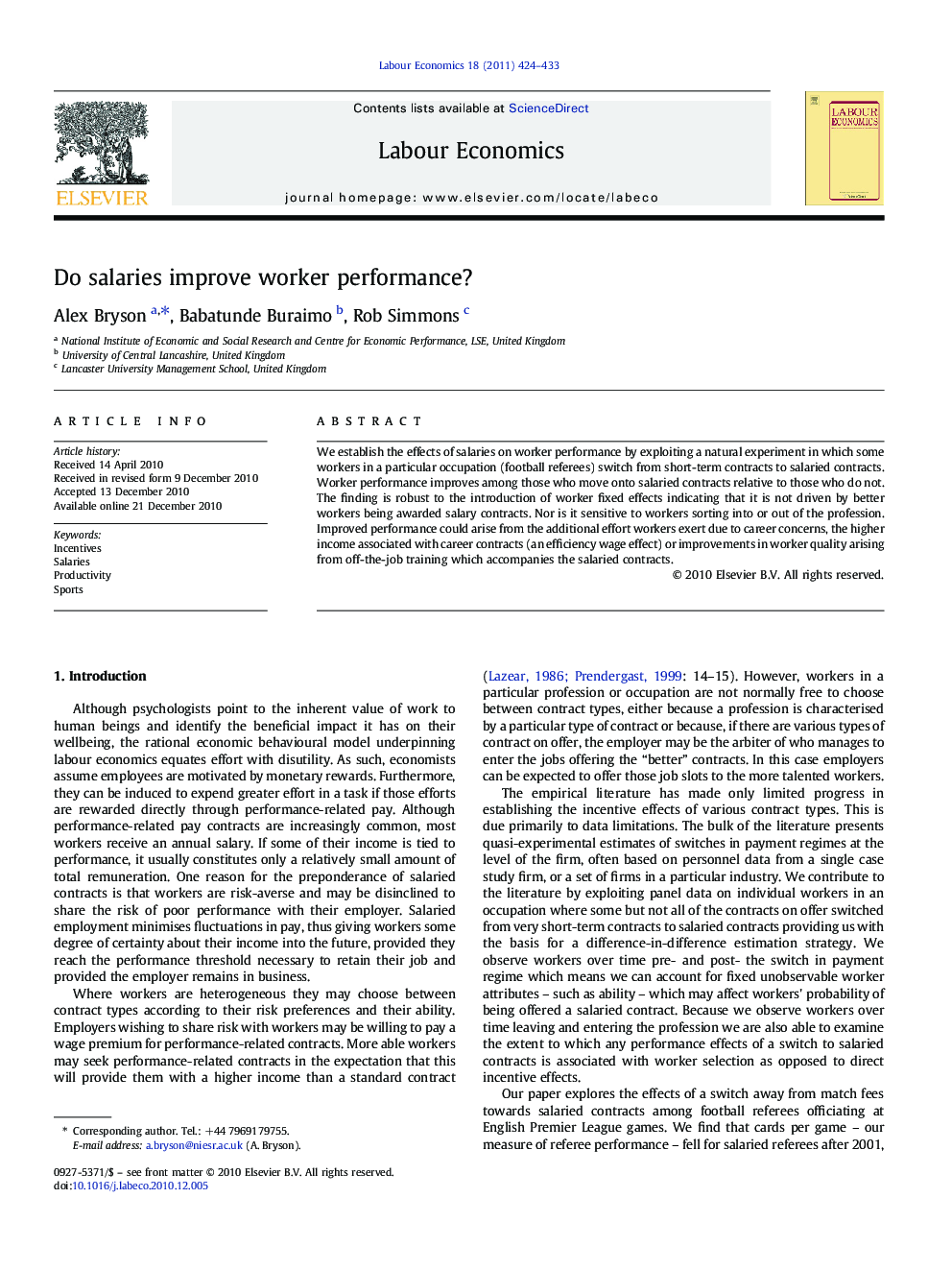| Article ID | Journal | Published Year | Pages | File Type |
|---|---|---|---|---|
| 972797 | Labour Economics | 2011 | 10 Pages |
We establish the effects of salaries on worker performance by exploiting a natural experiment in which some workers in a particular occupation (football referees) switch from short-term contracts to salaried contracts. Worker performance improves among those who move onto salaried contracts relative to those who do not. The finding is robust to the introduction of worker fixed effects indicating that it is not driven by better workers being awarded salary contracts. Nor is it sensitive to workers sorting into or out of the profession. Improved performance could arise from the additional effort workers exert due to career concerns, the higher income associated with career contracts (an efficiency wage effect) or improvements in worker quality arising from off-the-job training which accompanies the salaried contracts.
Research Highlights► We develop a principal-agent model with multi-task jobs linking payment methods to worker performance. ► We establish the effects of salaries on worker performance by exploiting a natural experiment in which some football referees switch from short-term contracts to salaried contracts. ► Using a difference-in-difference estimator we find worker performance improves among those who move onto salaried contracts relative to those who do not. ► The finding is not driven by better workers being awarded salary contracts, nor by workers sorting into or out of the profession. ► Improved performance could be due to extra effort due to career concerns, higher income from salaried contracts or productivity improvements due to new forms of off-the-job training.
